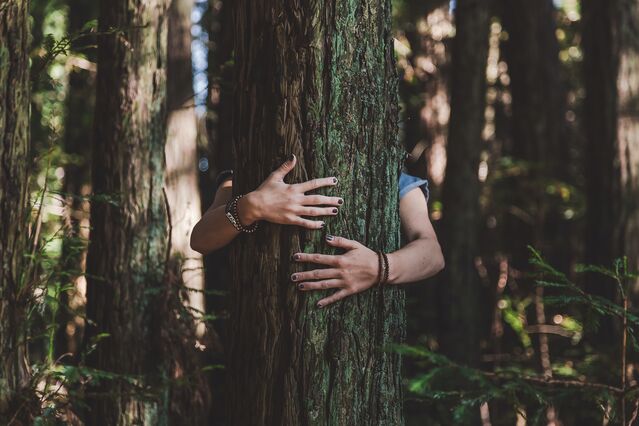Environment
The Moral Compasses of Tree-Huggers and Human-Lovers
What are the implications of morally valuing nature more than people?
Posted April 19, 2021 Reviewed by Matt Huston
Key points
- Placing a high value on animal life does not necessarily equate to ascribing higher worth to humans in need.
- In a new study, about a third of participants rated animals and nature as having more moral worth than people from marginalized groups.
- About two-thirds of study participants valued people from marginalized groups more than animals and nature.
- The total amount of moral concern expressed was similar across both groups.
In the coming decades, scientists predict that one million species will go extinct, while tens of millions of children in impoverished countries will die from preventable causes. In reflecting upon these horrific tragedies, does the loss of animal life or human life weigh on you more strongly?

Diagnosing whether you are more of an environmentalist or more of a humanitarian can provide critical insights into the nature of your moral compass. As my colleagues and I have recently demonstrated in a series of three research studies, published today in the journal Cognitive Science, there are both predictable differences and striking similarities between these two groups of people.
Approximately one-third of our participants, who were drawn largely from online samples of U.S. residents, valued animals and the natural world more than human beings from marginalized or stigmatized groups. When asked to indicate how much moral worth various entities possess, these “tree-huggers” indicated that coral reefs, polar bears, and other ecosystems and animals deserve moderate moral concern, while undocumented immigrants, schizophrenic individuals, and other outgroup members deserve minimal moral concern. They also preferred to donate to charities like the Rainforest Alliance over charities like Feed the Children. For the other two-thirds of participants (whom we refer to as “human-lovers”), this pattern was reversed. (Very few participants valued nature and outgroups equally.)
Strikingly, in every study we conducted, the total amount of moral concern expressed by tree-huggers and human-lovers was nearly identical. It's as if people consider moral value to be a finite resource that necessitates compensatory tradeoffs between valuing the natural world and valuing human outgroups.

Despite ascribing similar overall amounts of moral worth, as well as having similar political ideologies and religious convictions, tree-huggers and human-lovers differed on a number of psychological dimensions. Most prominently, tree-huggers were more likely to anthropomorphize (i.e., ascribe humanlike minds to animals) than human-lovers were, and they were also more likely to dehumanize (i.e., ascribe animal-like minds to humans). Although previous work has suggested that anthropomorphization and dehumanization are at opposite ends of a single continuum, such that people who tend to anthropomorphize should be less likely to dehumanize, and vice versa, our research indicates that some people have high levels of each of these tendencies.
Our new research additionally provides insights that go beyond previous research investigating attributions of moral worth. Other papers have typically examined how people differ in the overall expansiveness of their moral circles. These studies have demonstrated that some people are moral misers who only value close others and pay little attention to the suffering of distant people or animals, while others go to extraordinary lengths to improve the lives of others. However, these studies have not attended to differences in whether people care more about nature or outgroups. Our findings show that “tree-huggers” and “human-lovers” exist at every point along the continuum of moral expansiveness, thus introducing an important dimension of moral worth that has previously been overlooked.
In confronting the many moral issues that we face today, including climate change, it is imperative to consider both the human costs and the environmental costs. Tree-huggers and human-lovers must come together and find ways to pursue humanitarian and environmentalist agendas simultaneously. Such unification is imperative to tackle inevitable challenges and minimize suffering for all life on the planet.
References
Rottman, J., Crimston, C. R., & Syropoulos, S. (2021). Tree-huggers versus human-lovers: Anthropomorphism and dehumanization predict valuing nature over outgroups. Cognitive Science, 45(4), e12967. doi:10.1111/cogs.12967


